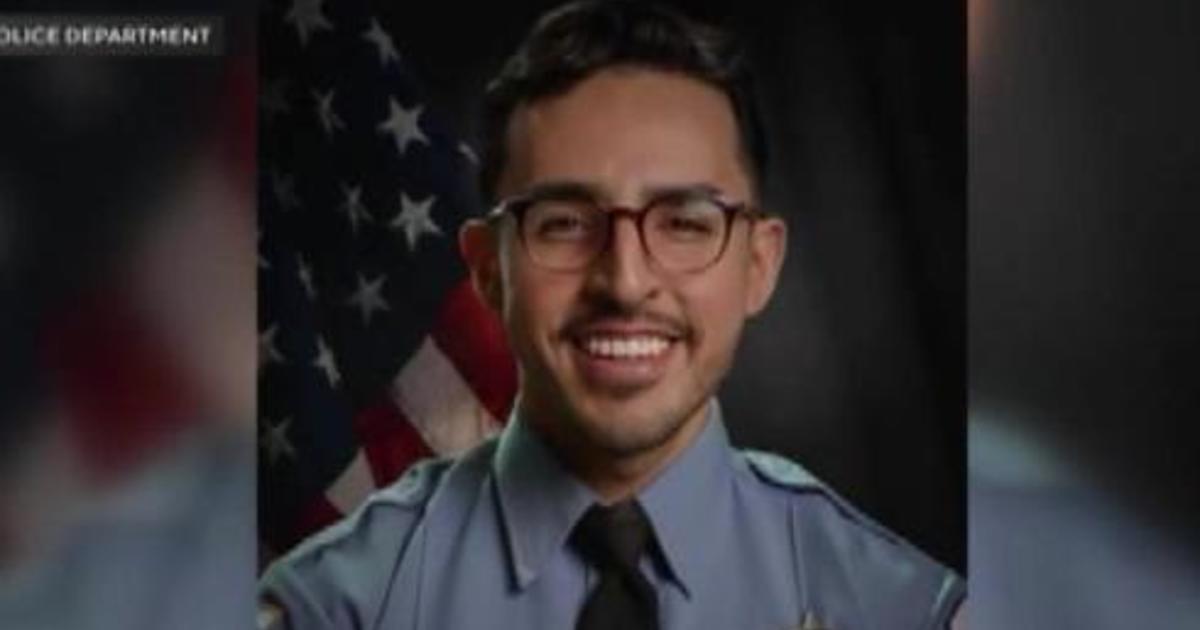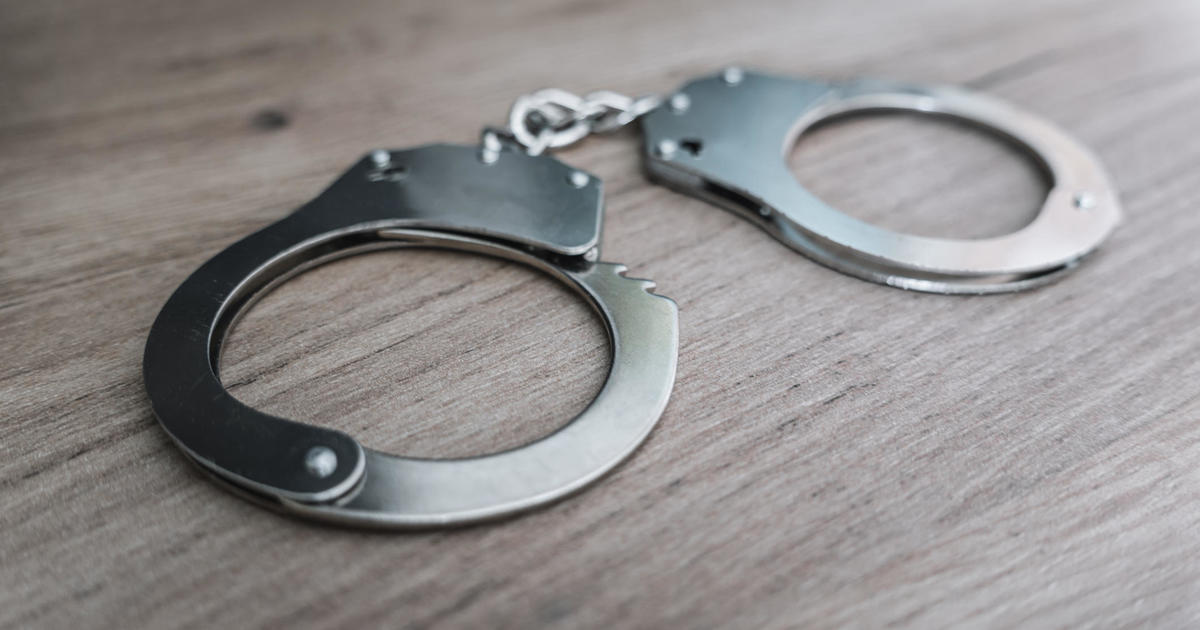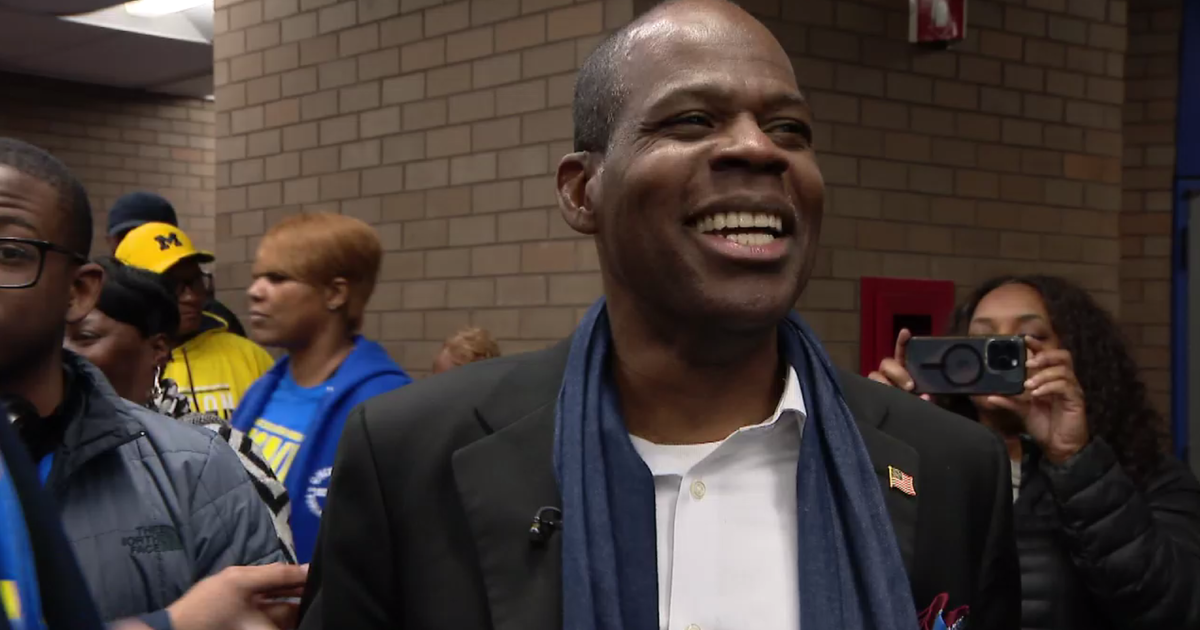Q&A: Rep. Mike Quigley On Day 1 Of Public Hearings In Trump Impeachment Probe
WASHINGTON (CBS) -- U.S. Rep. Mike Quigley (D-Illinois) was front and center for the questioning Wednesday as the House Intelligence Committee launched its impeachment inquiry against President Donald Trump.
The committee is probing Trump's effort to pressure Ukraine to investigate his political rivals.
The impeachment inquiry stems from a whistleblower complaint that raised concerns about a July 25 call between President Trump and Ukrainian President Volodymyr Zelensky. During the call, Trump urged Zelensky to investigate political rival Joe Biden, as well as a conspiracy theory that Ukraine has a server related to the 2016 hacking of Democratic National Committee emails.
The House Intelligence Committee held its first open hearing in the impeachment inquiry on Wednesday, calling acting Ukraine Ambassador William Taylor Jr. and Deputy Assistant Secretary of State George Kent as the first witnesses to testify in public.
Quigley was one of the first to take Republican lawmakers to task for claiming all of the witness testimony was "hearsay."
Quigley said, if the Trump administration and Republicans in Congress truly wanted to hear first-hand evidence in the impeachment inquiry, the White House wouldn't be blocking any of Trump's top aides from testifying.
On Wednesday evening, CBS 2 Executive Producer Ginger Maddox talked with Quigley about his reflections on the hearing, and what to expect as the inquiry continues.
Maddox: "First, just take us through, what were your thoughts about day one of the public hearings today?"
Quigley: "You know what I thought? That the cream of our diplomatic corps testified in an extraordinarily clear, compelling, credible way – consistent with all the testimony we've read so far, and they talked about a continuum of insidiousness, as Ambassador (to the European Union Gordon) Sondland called it. The fact that the President of the United States altered; changed longstanding U.S. policy to the detriment of our ally to benefit himself politically."
Maddox: "Given their long record of service with this country, do you think that they made the case today as to why they sounded the alarm? Because I know there's a lot of especially online chatter and tweets that, you know, they're just never-Trumpers. But do you think that they laid out the case as to why they felt compelled to come forward?"
Quigley: "I think it needs to be said that anybody who disagrees with the president is a 'never-Trumper.' These are career diplomats who have been apolitical; who have served our country well, sometimes at great risk and sacrifice, and it's a disservice to all of them that if you disagree with them or if they bring something to the public's attention, they have to be never-Trumpers. It's a strange denial plan that works with the president's base, but it shouldn't work with those Americans."
Maddox: "And what do you say to those that say, 'Well, you know, a lot of this is hearsay. These two gentlemen – this is hearsay. Maybe their aides heard something, but this is hearsay?'"
Quigley: "Well, it's hypocritical for the Republicans to question evidence when the White House has blocked a single document from getting to Congress on lawfully issued subpoenas. They have refused to issue a single document, and they have blocked over 12 witnesses from testifying, including (former National Security Adviser John) Bolton, including (Chief of Staff) Mick Mulvaney. So if you want, in their terms, more direct testimony, well then don't block it. What are you afraid of? Let the American public hear those voices."
Maddox: "Is that a form of obstruction?"
Quigley: "It's exactly obstruction. Last week on one day alone, the president refused to allow four people to be deposed. There's over a dozen. So in Article III of the Nixon impeachment articles, there were four instances of obstruction. This president has obstructed a lawful investigation four times in one day."
Maddox: "So what is different from this time? If you compare it to Nixon and Clinton, it just seems, for people that have lived through all of this, that this process seems divided. But what's different?"
Quigley: "Look, I think one of the things that's different is this involves a foreign government. Whatever Richard Nixon did – and he left office in disgrace – all of what he did was kept within the United States. Here we are committing crimes that affect other countries, and it dramatically impacts the reputation of the United States to the whole world – that we can't be trusted; that the president is enacting foreign policy for his own personal gain through the likes of Rudy Giuliani. So I think that's at least one reason that this is different than Nixon or Clinton."
Maddox: "But even, I would say like the process, because this is public – you know, why go public? Why not stick to the book, the same way that, you know, with Clinton and with Nixon?"
Quigley: "Well look, you know, under Nixon and Clinton, there was a special prosecutor appointed by the Justice Department. Unfortunately, this Justice Department is the lapdog of this president, and despite overwhelming the reality of the situation and the facts, they refuse to appoint a special prosecutor. So my committee – the House Select Committee on Intelligence – was forced to take up that role and have the depositions in a confidential setting. That's what a special prosecutor did, and then afterwards, he comes before the full Congress in the hearing that you're seeing now."
Maddox: "We're seeing some of this, you know, real-time emotions from voters on Twitter and Facebook."
Quigley: "That's part of what's different too is there wasn't social media in the manner which it is now, which does impact how the public views anything that's taking place."
Maddox: "What do you think that, you know, most Americans came away with in Day 1?"
Quigley: "I think there's a reason that we don't just pass out transcripts to jurors. I think it's important for them to see the person that's testifying; to read their body language. I think it does a lot to establish their credibility; make them more compelling, and it has a certain drama to it and a certain truth to it that can't come out otherwise."
Maddox: "So now what? Suppose that Trump is impeached in the House? (Senate) Republicans Lindsey Graham and Mitch McConnell pretty much said 'dead on arrival, not watching anything. When you have elected leaders saying, 'This doesn't matter to me,' that 'I don't care,' then what's the purpose in all of this?"
Quigley: "I think the first thing is that the president needs to be held accountable. This call with the president of Ukraine took place right after the special counsel (Robert) Mueller testified. So the president has never been held accountable for anything he's done wrong, so clearly, he believes that he got away with something – probably because the special counsel couldn't indict the president – and he goes on to greater crimes and misdemeanors. I think that's what you saw. So I can't control what Mr. McConnell does, or the Senate, but I do hope the American public recognizes in watching this testimony that what the president did was very wrong, and the fact that the Senate won't take it up is something that the voters take up with the senators who won't look at this matter, and take it and give its its due consideration."
Maddox: "Why don't you think some Republicans stand up and say, 'Well maybe something – at least let's investigate. Because this is not exactly – this is just checking, making sure that he didn't, and, you know, should we go forward?'"
Quigley: "I think it's a day to think about Senator (John) McCain, and the courage he showed in stepping up to this president. Aside from the late senator, there are very few Republicans who have shown profiles in courage. Paul Ryan left Congress in his role as speaker, and then he said he thought a lot of what the president did was wrong. It is wrong. Step up. Why don't you do it now? It's only because I guess you want to keep your seat and you're afraid of Republican primaries."
Maddox: "And what can we expect the next couple days? I know that there's (former Ambassador to Ukraine William B.) Taylor's aide is actually going to do a closed-door hearing Friday. What do think?"
Quigley: "Look, I think you're going to see some extraordinary American patriots who, again, spoke truth to power… in a very compelling fashion, and it's going to play out probably through the end of the year one way or another, and I think it's important for Americans to pay attention."
Maddox: "Do you have a message for us back in Chicago or Illinois?"
Quigley: "There's a lot of people of good mind who are trying to do the right thing – working hard to find the truth – and we're doing it with them in mind."



